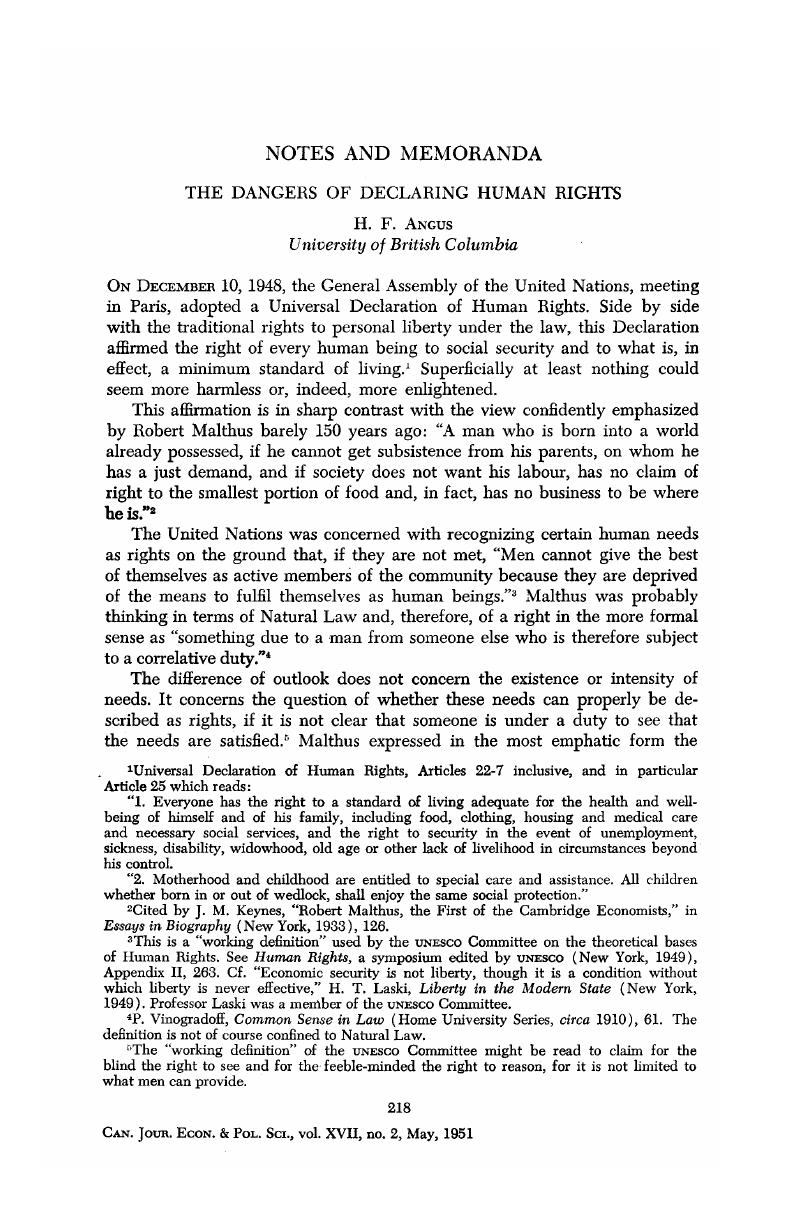No CrossRef data available.
Article contents
The Dangers of Declaring Human Rights
Published online by Cambridge University Press: 07 November 2014
Abstract

- Type
- Notes and Memoranda
- Information
- Canadian Journal of Economics and Political Science/Revue canadienne de economiques et science politique , Volume 17 , Issue 2 , May 1951 , pp. 218 - 221
- Copyright
- Copyright © Canadian Political Science Association 1951
References
1 Universal Declaration of Human Rights, Articles 22-7 inclusive, and in particular Article 25 which reads:
“1 . Everyone has the right to a standard of living adequate for the health and well-being of himself and of his family, including food, clothing, housing and medical care and necessary social services, and the right to security in the event of unemployment, sickness, disability, widowhood, old age or other lack of livelihood in circumstances beyond his control.
“2. Motherhood and childhood are entitled to special care and assistance. All children whether born in or out of wedlock, shall enjoy the same social protection.”
2 Cited by Keynes, J. M., “Robert Malthus, the First of the Cambridge Economists,” in Essays in Biography (New York, 1933), 126.Google Scholar
3 This is a “working definition” used by the unesco Committee on the theoretical bases of Human Rights. See Human Rights, a symposium edited by unesco (New York, 1949), Appendix II, 263.Google Scholar Cf. “Economic security is not liberty, though it is a condition without which liberty is never effective,” Laski, H. T., Liberty in the Modern State (New York, 1949).Google Scholar Professor Laski was a member of the unesco Committee.
4 Vinogradoff, P., Common Sense in Law (Home University Series, circa 1910), 61.Google Scholar The definition is not of course confined to Natural Law.
5 The “working definition” of the unesco Committee might be read to claim for the blind the right to see and for the feeble-minded the right to reason, for it is not hmited to what men can provide.
6 The phrase with which Marx dismissed the calculations of Malthus.
7 Human Rights, 147. But might they not be goals or principles accepted by nations, or international bodies, as mandatory or, at least, as more important than other goals and principles?




